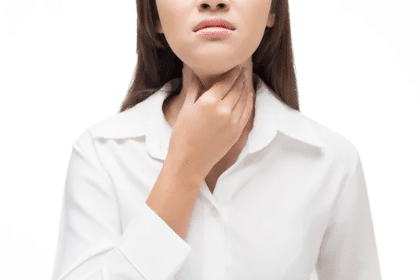Upper Respiratory Tract Infections (URTIs) impact the nose, throat, and airways, primarily caused by viruses. This article explores both modern treatments—like medications and rest—and Traditional Chinese Medicine (TCM) approaches, such as herbal remedies and acupuncture. It highlights the benefits of integrating TCM with conventional methods to enhance treatment effectiveness and overall respiratory health.
Understanding Upper Respiratory Tract Infections: A Blend of Modern Insights and Traditional Chinese Medicine
Introduction
Upper Respiratory Tract Infections (URTIs) rank among the most common reasons for doctor visits globally. Characterized by infections in the nose, throat, and trachea, URTIs can affect anyone, from the young to the elderly, particularly as the seasons change.
The Basics of URTI
An upper respiratory tract infection is an illness caused by an acute infection that involves parts of the upper respiratory tract including the nose, sinuses, pharynx, or larynx. Typical symptoms include coughing, sore throat, runny nose, sneezing, fever, and congestion. Viruses are the most common cause, but bacteria can also be responsible in some cases.
Traditional Chinese Medicine (TCM) Perspective
In TCM, URTIs are often seen as invasions of external pathogenic factors, such as Wind-Cold or Wind-Heat, that affect the body’s Qi (vital energy). The treatment focuses on expelling these external factors and strengthening the body’s defensive Qi. Common TCM therapies include herbal medicine, acupuncture, and dietary modifications.
Modern Treatment vs. TCM Approaches
Modern medicine typically addresses the symptoms of URTIs with over-the-counter remedies, rest, hydration, and, in bacterial cases, antibiotics. In contrast, TCM seeks to correct the underlying imbalance causing the symptoms. For instance, herbs like Ginseng and Astragalus might be used to boost the immune system, while acupuncture can help relieve symptoms and restore energy balance.
A woman feels sore throat
Prevention Tips
Preventing URTIs involves both general health practices and TCM principles:
- Wash your hands frequently and avoid close contact with sick individuals.
- Strengthen your immune system through a balanced diet, regular exercise, and sufficient sleep.
- In TCM, wearing scarves to protect the neck from cold and consuming warming foods during the colder months are recommended.
Frequently Asked Questions
What are the first signs of an Upper Respiratory Tract Infection?
The initial symptoms often include a sore throat, runny nose, and sneezing, which can progress to coughing and congestion.
Can TCM prevent URTIs?
Yes, TCM focuses on preventing diseases by maintaining balance and strengthening the body’s Qi. Practices such as wearing appropriate clothing to avoid cold, eating seasonal foods to enhance inner warmth, and using specific herbs can help prevent URTIs.
Are antibiotics effective against all URTIs?
Antibiotics are only effective against bacterial infections. Since most URTIs are viral, antibiotics are not typically prescribed unless a bacterial infection is diagnosed.
What TCM herbs are beneficial for URTIs?
Herbs like Mulberry Leaf, Honeysuckle Flower, and Forsythia Fruit are often used in TCM to treat symptoms of URTIs, depending on whether the condition is classified as Wind-Cold or Wind-Heat.
Conclusion
Understanding and addressing Upper Respiratory Tract Infections through both modern and traditional Chinese medicine offers a holistic approach to prevention and treatment. By blending the insights of both worlds, individuals can access a comprehensive toolkit for managing URTIs and enhancing overall wellness.



